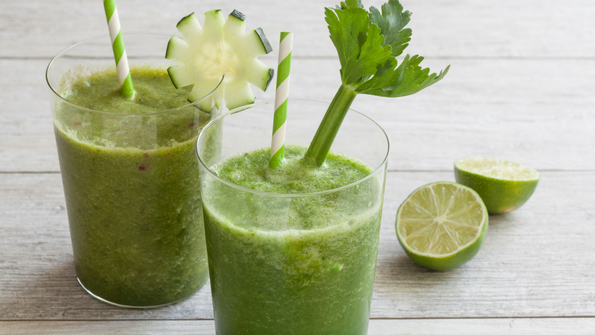Vegan
-
Chia seeds are packed with protein, fiber, antioxidants and calcium. Adding liquid gives the seeds a consistency similar to tapioca.
-
Muesli is a great alternative to expensive packaged cereal, and it’s filled with fiber, protein and flavor.
-
To make prep even quicker, swap 2¾ cups cabbage slaw mix for the carrots and cabbage in the recipe. If you can’t find kelp noodles, rice noodles make a fine substitute.
-
Dried beans, lentils and other pulses are super soil helpers. Unlike most plants, which pull nitrogen from the soil as a food source, beans work with soil microbes to pull nitrogen from the air, which both enriches the soil and reduces the need for fertilizer.
-
Mushrooms have a remarkably low environmental footprint. Research shows that a pound of mushrooms requires only 1.8 gallons of water to grow. Comparatively, it takes 2,000 gallons of water to produce a pound of beef.
-
Make the most of every ingredient. Prior to juicing the blood oranges, remove the zest of two oranges and save it to make Holiday Chocolate Bark.
-
These tacos are the perfect easy dinner option for vegans wanting to spice up their meal. The cilantro-lime slaw adds a zesty note on top of the savory taco.
-
Guajillo and ancho chillies are the secret to the home-made adobo in this vegetarian taco delight.
-
The cuisine of various countries in the Middle East—including Indian, Arab, Israeli, Greek, Persian, Turkish and Armenian food—is diverse, but typically used ingredients include chickpeas, olives, olive oil, rice, dates, honey, mint and parsley. Family-style eating, in which people take their food from a communal plate in the center of the table, is common in the Middle East. For authenticity sake, place the grain bowl components in the center of the table and let diners assemble their own.
